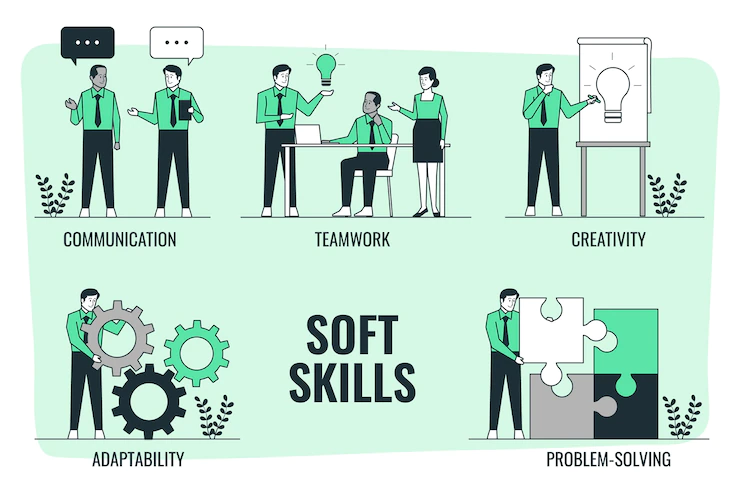In today's competitive job market, it's not just technical skills that set successful managers apart from the rest; soft skills play a vital role too. Soft skills are personal attributes that enable individuals to interact effectively with others, such as communication, problem-solving, teamwork, and adaptability. This article explores the role of soft skills in management career success and how they can help students and professionals achieve their goals.
Understanding Soft Skills
Soft skills are often referred to as interpersonal skills, people skills, or emotional intelligence. They are not technical skills but rather personal attributes that enable individuals to interact effectively with others. Soft skills are essential in every profession, but they are particularly important in management roles. Successful managers need to be able to communicate effectively, motivate their teams, and adapt to changes in the business environment.
Soft skills can be grouped into several categories, including:

Communication Skills
Communication skills involve the ability to convey information and ideas effectively to others. It includes both verbal and non-verbal communication, such as active listening, public speaking, and written communication.
Problem-Solving Skills
Problem-solving skills involve the ability to identify problems and find solutions to them. It includes critical thinking, decision-making, and analytical skills.
Teamwork Skills
Teamwork skills involve the ability to work effectively in a team. It includes leadership, collaboration, and conflict resolution skills.
Adaptability Skills
Adaptability skills involve the ability to adapt to changes in the business environment. It includes flexibility, openness to new ideas, and the ability to learn quickly.
The Importance of Soft Skills in Management
Soft skills play a important role in the success of managers in Accurate Institute of Management and Technology Greater Noida and other organizations. Some of the ways in which soft skills are essential for management success include:
Effective Communication
Effective communication is essential for managers to convey their ideas and plans to their teams. Good communication skills enable managers to motivate their teams, resolve conflicts, and foster a positive work environment.
Building Relationships
Building strong relationships with clients, colleagues, and employees is critical for managers. Soft skills such as empathy, active listening, and emotional intelligence enable managers to understand the needs and perspectives of others, which helps to build trust and foster positive relationships.
Managing Teams
Managing teams requires a range of soft skills, including leadership, collaboration, and conflict resolution. Effective managers need to be able to motivate and inspire their teams, delegate tasks effectively, and resolve conflicts in a constructive manner.
Adaptability
The business environment is constantly changing, and successful managers need to be able to adapt quickly to these changes. Soft skills such as flexibility and openness to new ideas enable managers to embrace change and navigate uncertainty.
How Soft Skills Can Be Developed
While some individuals may possess natural soft skills, they can also be developed and honed through training and practice. Some of the ways in which soft skills can be developed include:
Training and Workshops
Training and workshops can be an effective way to develop soft skills. Accurate Institute of Management and Technology and other educational institutions offer courses and workshops on soft skills such as communication, leadership, and teamwork.
Mentoring and Coaching
Mentoring and coaching can provide individuals with personalized guidance and feedback on their soft skills. This can be particularly helpful for those in management roles who want to develop their skills further.
Practice and Feedback
Soft skills can be developed through practice and feedback. Individuals can practice their communication, leadership, and teamwork skills in various situations, such as team meetings, presentations, and networking events. Seeking feedback from colleagues and mentors can also help individuals identify areas for improvement.
CONCLUSION
In conclusion, soft skills play a vital role in the success of managers in AIMT and other organizations. While technical skills are important, it is the ability to communicate, problem-solve, work in a team, and adapt to change that sets successful managers apart from others. Developing soft skills can be achieved through training, mentoring, practice, and feedback. Accurate Institute of Management and Technology Greater Noida and other educational institutions offer courses and workshops on soft skills, which can help students develop the necessary skills to succeed in management roles. In today's rapidly changing business environment, the demand for soft skills is likely to continue to grow. Thus, students and professionals in management roles need to focus on developing their soft skills to achieve long-term career success.












